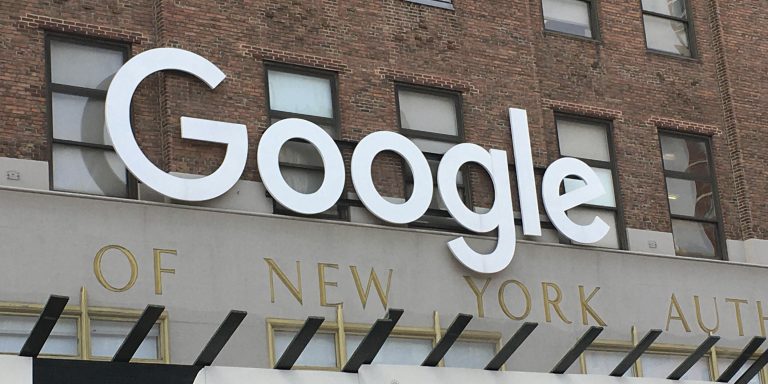INTELBRIEF
November 10, 2020
IntelBrief: What’s at Stake in the U.S. Government Antitrust Lawsuit against Google?

Bottom Line Up Front
- In late October, the United States Government filed an antitrust lawsuit against Google.
- The Justice Department’s case alleges that Google’s business practices stifle competition, leading to adverse consequences for consumers.
- The case against Google harkens back to previous anti-monopoly efforts against large U.S. corporations like AT&T and Microsoft.
- There could be a wide array of implications, some of which are impossible to predict, should Google lose the court case.
In late October, the Department of Justice (DOJ) filed a lawsuit against Google for alleged violations of antitrust laws. The legal action against the tech giant comes against the backdrop of a Presidential election and President Trump’s unrelenting barrage of tweets and comments that assert ‘liberal’ Silicon Valley companies are unfairly censoring conservatives. While the timing of the lawsuit calls into question political motives, the idea of possibly taking regulatory action against companies like Google does have bipartisan support on Capitol Hill. On the one hand, Democratic senior leaders have bemoaned the invasion of privacy, electoral influence (such as Facebook’s 2016 shenanigans), flow of disinformation and misinformation, proliferation of Deepfakes, and unwillingness to remove toxic content associated with terrorists and violent extremists. On the other hand, Republicans have mused that companies like Google (YouTube), Twitter, and Facebook are more willing to remove conservative content for violating company community and safety standards than acerbic commentary associated with political left. In fact, a shared animus of social media companies is perhaps one of the few areas that allows for bipartisan cooperation. The shared concern regarding the reach, influence, and perceived unchecked power of Silicon Valley companies like Google has resulted in multiple Senate and House hearings and the introduction of legislation to attenuate the rise of large tech firms.
The Justice Department’s complaint against Google centers upon the company’s alleged monopoly over Internet search and search advertising. Specifically, the Justice Department, inter alia, alleges that Google’s exclusivity agreements, pre-installation of its search application, and long-term agreements with companies like Apple that require that Google serve as the default search browser create an unfair environment in which competition is nearly impossible. The essence of the government’s argument is that the above-noted practices are inherently anti-competitive and suffocates innovation – thereby creating an atmosphere that hurts ‘American consumers, advertisers, and all companies now reliant on the internet economy.’
The lawsuit against Google harkens back to previous antitrust lawsuits the U.S. pushed forward against AT&T in the 1970s and Microsoft in the late 1990s. The AT&T case lasted seven years and resulted in a settlement where the company agreed to disassemble itself into smaller independent entities. Like AT&T, Microsoft agreed to a settlement with the U.S. Government after three years of litigation (and court losses). The latter case, arguably and perhaps ironically, created an opportunity for other companies to create internet browsers which would go on to become competitors to Microsoft’s Internet Explorer and were often bundled and integrated with newly purchased computers. According to legal experts, it may take more than one year before the trial between the United States Government and Google begins; thus, in the short-term, consumers should expect few changes as a result of the filing. With the impending change of administration from Trump to Biden, it is quite possible that the case will continue based on the merits of the filing and bipartisan concern that surrounds the meteoric rise of companies like Google.
If Google loses or settles the case with the U.S. government and must modify its practices and/or sell components of its business off, the result could include a wide range of implications. First, the spillover effects may create momentum for the U.S. Government to take comparable legal action against other companies—Apple, Amazon, and Facebook, to name a few. Second, there is the possibility that a court decision or settlement between the parties may lead to greater innovation and new products. Where will that innovation occur? It is not a foregone conclusion that the next great technological leap in browser search and search-advertising will be U.S.-developed. European- and Asian-based companies could very well develop technology that transcends the capabilities of U.S. businesses – and thus the U.S. court case could inadvertently curb domestic U.S. economic growth. Third, Google’s defeat and the foreshadowing of more government regulation could have the unintended effect of impeding Silicon Valley interest in creating cheap (often ‘free’) tools that benefit consumers. Google Docs, OneDrive, and Sheets have become staples for elementary, high school, college, and graduate students – particularly for those who cannot afford the Microsoft Office suite of tools. The matter of access to inexpensive online learning tools is particularly important during a pandemic and economic recession, and while it is unclear if a Google defeat would exacerbate economic inequities, the possibility cannot be dismissed. The wide-range of implications of the U.S. government lawsuit against Google remains difficult to predict, but consumers, companies, and educators should prepare for the spillover to impact more than one company.